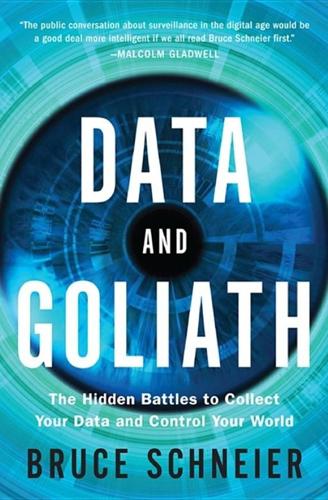
Data and Goliath: The Hidden Battles to Collect Your Data and Control Your World
by
Bruce Schneier
Published 2 Mar 2015
Zimbardo (May 1975), “The chilling effects of surveillance: Deindividuation and reactance,” Office of Naval Research/National Technical Information Service, http://www.dtic.mil/dtic/tr/fulltext/u2/a013230.pdf. The net result is that GPS: US Supreme Court (23 Jan 2012), “Decision,” United States v. Jones (No. 10-1259), http://caselaw.lp.findlaw.com/scripts/getcase.pl?court=US&navby=case&vol=000&invol=10-1259#opinion1. Eben Moglen wrote: Eben Moglen (27 May 2014), “Privacy under attack: The NSA files revealed new threats to democracy,” Guardian, http://www.theguardian.com/technology/2014/may/27/-sp-privacy-under-attack-nsa-files-revealed-new-threats-democracy. Sources are less likely to contact: G. Alex Sinha (28 Jul 2014), “With liberty to monitor all,” Human Rights Watch, http://www.hrw.org/reports/2014/07/28/liberty-monitor-all.
…
Privacy is an inherent human right: Eben Moglen defines privacy in three parts: “First is secrecy, or our ability to keep the content of our messages known only to those we intend to receive them. Second is anonymity, or secrecy about who is sending and receiving messages, where the content of the messages may not be secret at all. It is very important that anonymity is an interest we can have both in our publishing and in our reading. Third is autonomy, or our ability to make our own life decisions free from any force that has violated our secrecy or our anonymity.” Eben Moglen (27 May 2014), “Privacy under attack: The NSA files revealed new threats to democracy,” Guardian, http://www.theguardian.com/technology/2014/may/27/-sp-privacy-under-attack-nsa-files-revealed-new-threats-democracy.
…
Madrid Privacy Declaration (2009): The Public Voice (3 Nov 2009), “The Madrid Privacy Declaration,” International Conference of Data Protection and Privacy Commissioners, Madrid, Spain, http://privacyconference2011.org/htmls/adoptedResolutions/2009_Madrid/2009_M1.2.pdf. Rebecca MacKinnon makes this point: Rebecca MacKinnon (2012), Consent of the Networked: The Worldwide Struggle for Internet Freedom, Basic Books, http://www.owlasylum.net/owl_underground/social/ConsentoftheNetworked.pdf. 15: Solutions for the Rest of Us Law professor Eben Moglen wrote: Eben Moglen (27 May 2014), “Privacy under attack: The NSA files revealed new threats to democracy,” Guardian, http://www.theguardian.com/technology/2014/may/27/-sp-privacy-under-attack-nsa-files-revealed-new-threats-democracy. I’m going to break them down: Sociologist Gary Marx cataloged 11 different ways people resist surveillance; I’m going to be drawing on his taxonomy in this section.
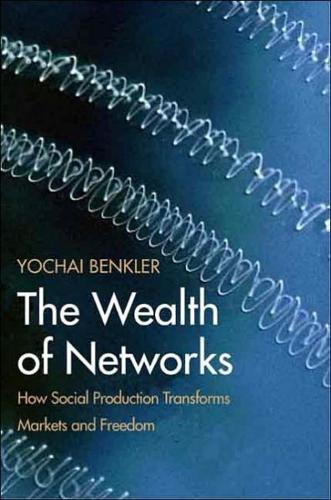
The Wealth of Networks: How Social Production Transforms Markets and Freedom
by
Yochai Benkler
Published 14 May 2006
Its roots go back to 1993-1994: long nights of conversations, as only graduate students can have, with Niva Elkin Koren about democracy in cyberspace; a series of formative conversations with Mitch Kapor; a couple of madly imaginative sessions with Charlie Nesson; and a moment of true understanding with Eben Moglen. Equally central from around that time, but at an angle, were a paper under Terry Fisher's guidance on nineteenth-century homesteading and the radical republicans, and a series of classes and papers with Frank Michelman, Duncan Kennedy, Mort Horwitz, Roberto Unger, and the late David Charny, which led me to think quite fundamentally about the role of property and economic organization in the construction of human freedom.
…
By the end of a two-hour conversation, we had formed a friendship and intellectual conversation that has been central to my work ever since. He has, over the past few years, played a pivotal role in changing the public understanding of control, freedom, and creativity in the digital environment. Over the course of these years, I spent many hours learning from Jamie Boyle, Terry Fisher, and Eben Moglen. In different ways and styles, each of them has had significant influence on my work. There was a moment, sometime between the conference Boyle organized at Yale in 1999 and the one he organized at Duke in 2001, when a range of people who had been doing similar things, pushing against the wind with varying degrees of interconnection, seemed to cohere into a single intellectual movement, centered on the importance of the commons to information production and creativity generally, and to the digitally networked environment in particular.
…
That growing literature, consistent with its own goals, has focused on software and the particulars of the free and open-source software development communities, although Eric von Hippel's notion of "user-driven innovation" has begun to expand that focus to thinking about how individual need and creativity drive innovation at the individual level, and its diffusion through networks of likeminded individuals. The political implications of free software have been central to the free software movement and its founder, Richard Stallman, and were developed provocatively and with great insight by Eben Moglen. Free software is but one salient example of a much broader phenomenon. Why can fifty thousand volunteers successfully coauthor Wikipedia, the most serious online alternative to the Encyclopedia Britannica, and then turn around and give it away for free? Why do 4.5 million volunteers contribute their leftover computer cycles to create the most powerful supercomputer on Earth, SETI@Home?
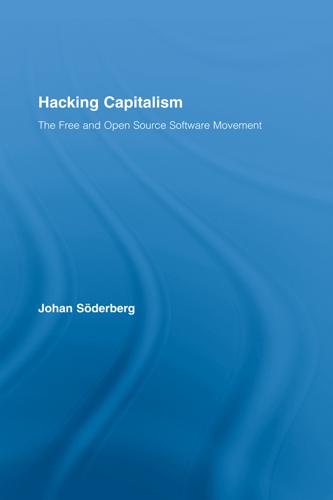
Hacking Capitalism
by
Söderberg, Johan; Söderberg, Johan;
In a paraphrase of Vladimir Lenin’s famous endorsement of electricity, Zizek exclaimed in a tongue-in-cheek way that: “socialism = free access to the Internet + power to the soviets”.12 Sporadic allusions to the Communist Manifest are frequent within the computer underground. The most renowned insider drawing parallels between Marx and the hacker movement is Eben Moglen. As the pro bono general counsellor for the Free Software Foundation, an influential organisation of hackers, Eben Moglen is well accustomed with the practice of hacking. He is convinced that capitalism will be brought to an end by a tide out of which hacking is just the first wave.13 Concurrently, a range of antagonists to the FOSS movement have accused GNU/Linux and alternative licensing schemes for being un-American, subversive, and cancerous.
…
Bloggers are stitched together in the loosest possible sense, relying on Internet search engines instead of an editor for sorting out noise from information. The loose way of organising their activity has contributed to the rapid growth of the bloggsphere. Once a critical mass of contributors has been built up, grass-root reporting is at an advantage over traditional news reporting. Eben Moglen, a prominent member of the Free Software Foundation, identified this mechanism when noticing that the broadcasting networks, with their over-paid celebrities and expensive equipment, are about the only organisations that cannot afford to be everywhere in the world at the same time. With a digital camera ready-at-hand and an Internet connection close by, the anarchistic mode of news reporting turns any passer-by into a potential journalist for a moment, just as the FOSS model turns every computer-user into a potential bug reporter.
…
Charles Babbage, On the Economy of Machinery and Manufactures (New York: Augustus M Kelley Publishers, 1971), 54. 10. Jason Scott, BBS the Documentary (2004). 11. Andrew Sullivan, “Counter Culture: Dot-communist Manifesto”, New York Times (Sunday 11, June 2000). 12. Slavoj Zizek, “A Cyberspace Lenin: Why Not?”, International Socialism Journal 95, (summer 2002). 13. In “The DotCommunism Manifesto” Eben Moglen directly paraphrases Karl Marx’s manifesto.emoglen.law.columbia.edu/publications/dcm.html (accessed 2007-02-08). 14. “Gates Taking a Seat in Your Den” CNetNews.com (January 5, 2005). 15. For a less cosy account of IBM’s political legacy, see Edwin Black, IBM and the Holocaust: The Strategic Alliance Between Nazi Germany and America’s Most Powerful Corporation (London: Little, Brown & co, 2001).
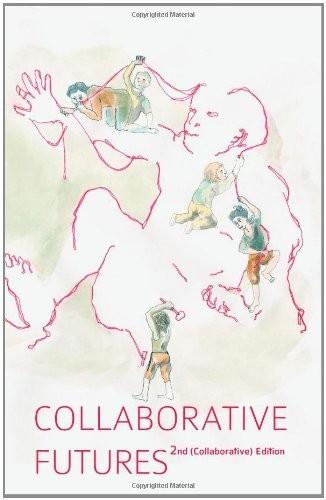
Collaborative Futures
by
Mike Linksvayer
,
Michael Mandiberg
and
Mushon Zer-Aviv
Published 24 Aug 2010
On Economism and Incentives If the above addresses the ‘with whom’ and ‘where’ can we collaborate, we can now return to the why. But it is an inquiry inflected by the initial comments on social production above. We are always producing with others, and why we do so has varied explanations not all of which can be explained in the language of incentives. Eben Moglen captures this well in his discussion of the energy behind creativity in general and free so ware in particular: “According to the econodwarf’s vision, each human being is an individual possessing “incentives,” which can be retrospectively unearthed by imagining the state of the bank account at various times.
…
So Moglen's Metaphorical Corollary to Faraday's Law says that if you wrap the Internet around every person on the planet and spin the planet, so ware flows in the network. It's an emergent property of connected human minds that they create things for one another's pleasure and to conquer their uneasy sense of being too alone. —Eben Moglen, Anarchism Triumphant: Free So ware and the Death of Copyright The dogma of monetary incentives, with which Moglen quarrels, is rooted in a philosophical history which reached its apogee in the work of Jeremy Bentham. According to his prescription, individuals act to a ain that which is good for them—the useful.
…
But I dare to say that the labour perspective deserves more a ention than it has been given by popular and scholarly critics of intellectual property till now. Both hackers and academic writers tend to formulate their critique against intellectual property law from a consumer rights horizon and borrow arguments from a liberal, political tradition. There are, of course, noteworthy exceptions. People like Eben Moglen, 134 Slavoj Zizek and Richard Barbrook have reacted against the liberal ideology implicit in much talk about the Internet by courting the revolutionary rhetoric of the Second International instead. Their ideas are original and eye-catching and o en full of insight. Nevertheless, their rhetoric sounds oddly out of place when applied to pragmatic hackers.
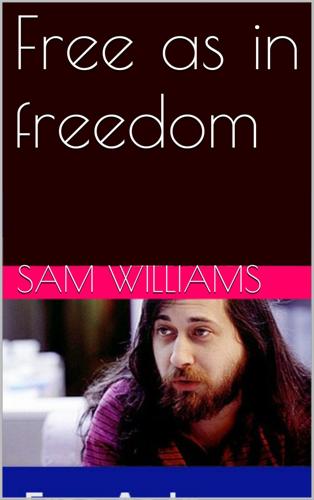
Free as in Freedom
by
Sam Williams
Published 16 Nov 2015
To understand the reasons behind this currency, it helps to examine Richard Stallman both in his own words and in the words of the people who have collaborated and battled with him along the way. The Richard Stallman character sketch is not a complicated one. If any person exemplifies the old adage "what you see is what you get," it's Stallman. "I think if you want to understand Richard Stallman the human being, you really need to see all of the parts as a consistent whole," advises Eben Moglen, legal counsel to the Free Software Foundation and professor of law at Columbia University Law School. "All those personal eccentricities that lots of people see as obstacles to getting to know Stallman really are Stallman: Richard's strong sense of personal frustration, his enormous sense of principled ethical commitment, his inability to compromise, especially on issues he considers fundamental.
…
See Marco Boerries, interview with author (July, 2000). Such comments point out the under-recognized strength of the GPL and, indirectly, the political genius of man who played the largest role in creating it. "There isn't a lawyer on earth who would have drafted the 150 GPL the way it is," says Eben Moglen, Columbia University law professor and Free Software Foundation general counsel. "But it works. And it works because of Richard's philosophy of design." A former professional programmer, Moglen traces his pro bono work with Stallman back to 1990 when Stallman requested Moglen's legal assistance on a private affair.
…
Hearing Sarah describe what attracted her to Stallman and hearing Stallman himself describe the emotions that prompted him to take up the free software cause, I was reminded of my own reasons for writing this book. Since July, 2000, I have learned to appreciate both the seductive and the repellent sides of the Richard Stallman persona. Like Eben Moglen before me, I feel that dismissing that persona as epiphenomenal or distracting in relation to the overall free software movement would be a grievous mistake. In many ways the two are so mutually defining as to be indistinguishable. While I'm sure not every reader feels the same level of affinity for Stallman-indeed, after reading this book, some might feel zero affinityI'm sure most will agree.
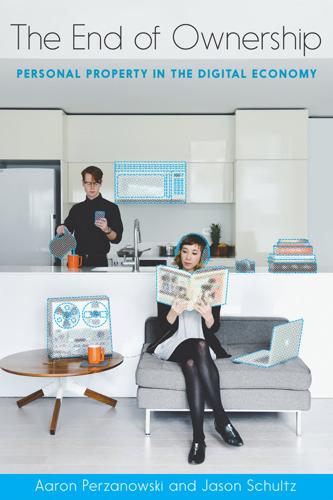
The End of Ownership: Personal Property in the Digital Economy
by
Aaron Perzanowski
and
Jason Schultz
Published 4 Nov 2016
Developers of free software are committed to the idea that all users should be free to run software, study it, modify it, and redistribute it. Those core beliefs are reflected in free software licenses like the GNU General Public License, or GPL. Examples of free software products include the Firefox web browser, the Apache web server, and MySQL relational database software. As Eben Moglen, head of the Software Freedom Law Center and one of the drafters of the current version of the GPL explains, “Licenses are not contracts: the work’s user is obliged to remain within the bounds of the license not because she voluntarily promised, but because she doesn’t have any right to act at all except as the license permits.”40 An approach that roots licenses in property law is preferable to one that treats them like contracts.
…
Melvin Aron Eisenberg, “The Limits of Cognition and the Limits of Contract,” Stanford Law Review 47 (January 1995): 211–259, at 243–244. 37. ProCD, Inc. v. Zeidenberg, 86 F.3d 1447, 1454 (7th Cir. 1996). 38. Ibid., 1452. 39. Chris Newman, “A License Is Not a ‘Contract Not to Sue’: Disentangling Property and Contract in the Law of Copyright Licenses,” Iowa Law Review 98 (March 2013): 1103–1160, at 1141. 40. Eben Moglen, “Enforcing the GNU GPL,” GNU.org, September 10, 2001, http://www.gnu.org/philosophy/enforcing-gpl.html, accessed July 7, 2015. 41. See 17 U.S.C. § 107 (2012). 42. Jeremy Gordon, “RZA Says Wu-Tang Clan Offered $5 Million for New Album That’s Only Available as One Copy,” Pitchfork, April 2, 2014, http://pitchfork.com/news/54627-rza-says-wu-tang-clan-offered-5-million-for-new-album-thats-only-available-as-one-copy/, accessed July 7, 2015. 43.
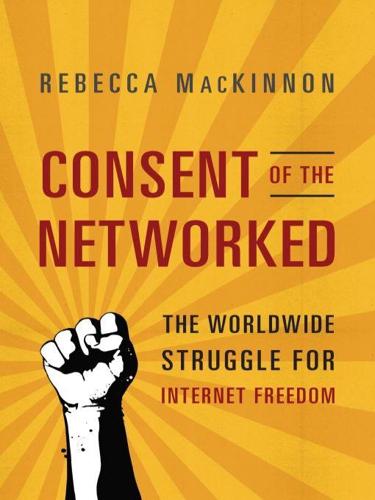
Consent of the Networked: The Worldwide Struggle for Internet Freedom
by
Rebecca MacKinnon
Published 31 Jan 2012
A group of programmers in the Seattle area has developed open-source social networking software called Crabgrass, tailored specifically for the needs of political activists. An older project, StatusNet, enables people to set up their own Twitter-like microblogging services that they can control locally. In early 2011 Columbia University professor Eben Moglen announced a new project dubbed FreedomBox, aimed at addressing the vulnerability of activists and dissidents who currently rely too much on centralized corporate services like Facebook and Amazon to store their data and disseminate their media messages. The problem, he explained in a speech, was caused by the creation of a standard service architecture that is “very subject to misuse” because it consists of “vast repositories of hierarchically organized data about people at the edges of the network that they do not control.”
…
Disclosure: I served on its board of directors for one year in 2007. 230 Diaspora: See “Taking a Look at Social Network Diaspora,” NY Convergence, March 14, 2011, http://nyconvergence.com/2011/03/taking-a-look-at-social-network-diaspora.html. 230 Crabgrass: http://crabgrass.riseuplabs.org. 230 StatusNet: http://status.net. 230 FreedomBox: https://freedomboxfoundation.org.Also see Jim Dwyer, “Decentralizing the Internet So Big Brother Can’t Find You,” New York Times, February 15, 2011, www.nytimes.com/2011/02/16/nyregion/16about.html; and “Freedom in the Cloud: Software Freedom, Privacy, and Security for Web 2.0 and Cloud Computing—A Speech Given by Eben Moglen at a Meeting of the Internet Society’s New York Branch on Feb. 5, 2010,” Software Freedom Law Center, www.softwarefreedom.org/events/2010/isoc-ny/FreedomInTheCloud-transcript.html. 232 Chaos Computer Club: www.ccc.de/en; for a colorful description of the CCC’s characters and culture, see Becky Hogge, Barefoot into Cyberspace: Adventures in Search of Techno—Utopia (London: Rebecca Hogge, 2011). 232 Chaos Communication Camp: http://events.ccc.de/camp/2011. 232 yearly winter conferences: See http://events.ccc.de/congress/2010/wiki/Welcome. 232 “A Declaration of the Independence of Cyberspace”: https://projects.eff.org/~barlow/Declaration-Final.html. 233 Douglas Rushkoff called on the netizens of the world to unite: Douglas Rushkoff, “The Next Net,” Shareable.net, January 3, 2011, http://shareable.net/blog/the-next-net.
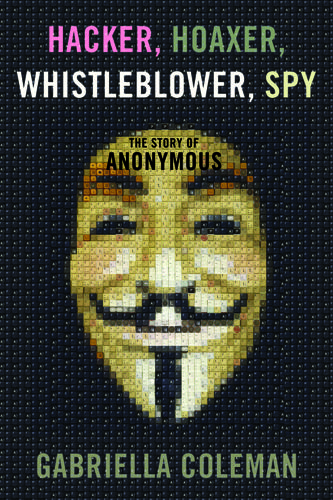
Hacker, Hoaxer, Whistleblower, Spy: The Story of Anonymous
by
Gabriella Coleman
Published 4 Nov 2014
The hurdles are gargantuan; the sanctioned channels for political change in the US are frighteningly narrow.15 The technical architecture of the Internet—wherein centralized, corporate-controlled servers house most of our data—makes capture both trivially easy and ubiquitous; this technical scenario has been described by civil liberties lawyer Eben Moglen as a “recipe for disaster,” prompting him and other Internet technologists, like Bruce Schneier, to declare, “We need to figure out how to re-engineer the internet to prevent this kind of wholesale spying.”.16 Finally, as ACLU staff technologist Chris Soghoian argues, so long as Internet firms continue to “monetize their users’ private data,” they can never adopt a truly “pro-user” privacy policy.17 And yet, a field which seemed barren now resembles fertile terrain.
…
They concluded what many already suspected to be the case: “Economic elites and organized groups representing business interests have substantial independent impacts on US government policy, while mass-based interest groups and average citizens have little or no independent influence.” Martin Gilens and Benjamin Page, “Testing Theories of American Politics: Elites, Interest Groups, and Average Citizens,” Perspective on Politics, forthcoming. 16. Eben Moglen, “Freedom In the Cloud: Software Freedom, Privacy, and Security for Web 2.0 and Cloud Computing,” speech given at meeting of the New York branch of the Internet Society, Feb. 5, 2010. Available at http://www.softwarefreedom.org/events/2010/isoc-ny/FreedomInTheCloud-transcript.html. (Last accessed July 2, 2014.)
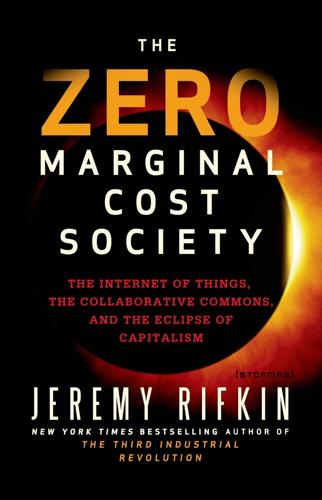
The Zero Marginal Cost Society: The Internet of Things, the Collaborative Commons, and the Eclipse of Capitalism
by
Jeremy Rifkin
Published 31 Mar 2014
The Linux kernel made it possible for thousands of prosumers around the world to collaborate via the Internet on improving free software code.6 Today, GNU/Linux is used in more than 90 percent of the fastest 500 supercomputers, as well as by Fortune 500 companies, and even runs on embedded systems like tablet computers and mobile phones.7 Eben Moglen, professor of law and legal history at Columbia University, wrote in 1999 of the seminal importance of the Linux achievement: Because Torvalds chose to release the Linux kernel under the Free Software Foundation’s General Public License . . . the hundreds and eventually thousands of programmers around the world who chose to contribute their effort towards the further development of the kernel could be sure that their effort would result in permanently free software that no one could turn into a proprietary product.
…
Arvind Kumar, Welcome to the ‘Free’ World: A Free Software Initiative (Hyderabad: Indian Universities Press, 2011), 28. 5. Lawrence Lessig, “Code Is Law: On Liberty in Cyberspace,” Harvard Magazine, January-February 2000, http://harvardmagazine.com/2000/01/code-is-law-html (accessed June 13, 2013). 6. Eben Moglen, “Anarchism Triumphant: Free Software and the Death of Copyright,” First Monday 4(8) (August 2, 1999), http://pear.accc.uic.edu/ojs/index.php/fm/article/view/684/594 (June 10, 2013). 7. Steven J. Vaughan-Nichols, “Fast, Faster, Fastest: Linux Rules Supercomputing,” ZD Net, June 19, 2012, http://www.zdnet.com/blog/open-source/fast-faster-fastest-linux-rules-supercomputing/ 11263 (accessed June 13, 2013); Roger Parloff, “How Linux Conquered the Fortune 500,” CNN Money, May 6, 2013, http://money.cnn.com/2013/05/06/technology/linux-500.pr.fortune/ (accessed November 13, 2013). 8.
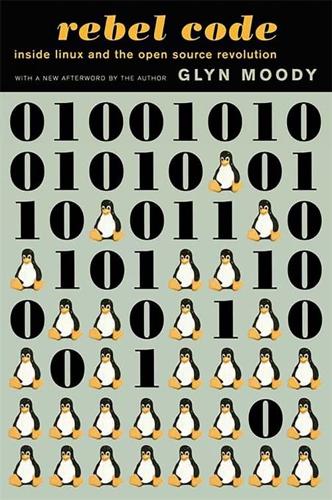
Rebel Code: Linux and the Open Source Revolution
by
Glyn Moody
Published 14 Jul 2002
Slashdot is a highly visible example of where the open source philosophy challenges the traditional structures of information, especially economic and legal, and its dissemination. But some believe that open source software itself may have just as great an impact as open journalism in reshaping the landscape of intellectual property. One such is Professor Eben Moglen, professor of legal history at Columbia University and general counsel to the Free Software Foundation. His contention is that the current overlapping legal systems of patents, copyright law, and trade secrets are becoming unworkable. Moglen says that the history of law offers precedents to suggest that such unstable situations cannot persist.
…
Digital Millennium Copyright Act, which grants copyright owners wide-ranging powers to pursue copyright infringement. Slashdot responded by declaring its “hesitation to engage in censorship” through withdrawal of postings made by its readers. The Kerberos saga therefore makes explicit the increasingly tangled relationships between trade secrets, free software, copyright, and freedom—as Eben Moglen, general counsel to the Free Software Foundation, had predicted. Moglen is able to speak directly from experience regarding another area where free software potentially faces legal challenges. Some have suggested that the GNU GPL, the de facto constitution for the entire free-software movement, may not stand up in court.
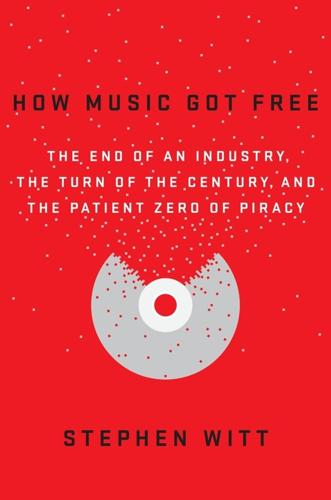
How Music Got Free: The End of an Industry, the Turn of the Century, and the Patient Zero of Piracy
by
Stephen Witt
Published 15 Jun 2015
“Do not steal music” See, for example, Brandenburg’s keynote lecture, Techfest 2012, IIT Bombay, India. Fraunhofer made their feelings known to the device manufacturers Chris “Monty” Montgomery, who led the development of the Ogg standard, later called these kinds of actions a “protection racket.” Open-source advocate Eben Moglen observed that “an accusation of infringement has no legal weight, so there is no real downside to making such a claim.” For more, see Jake Edge, “Xiph.org’s ‘Monty’ on Codecs and Patents,” Lwn.net, November 9, 2011. CHAPTER 11 The document that outlined the methodology for encoding and distributing Scene mp3s Historical Scene releasing standards for a variety of media can currently be found at Scenerules.irc.gs.
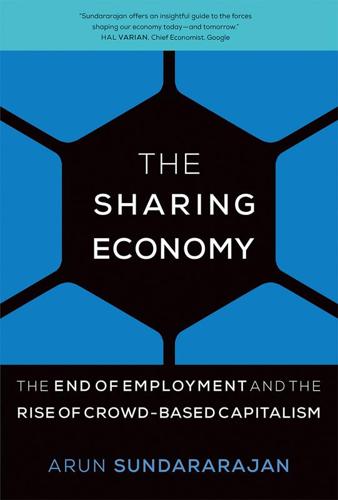
The Sharing Economy: The End of Employment and the Rise of Crowd-Based Capitalism
by
Arun Sundararajan
Published 12 May 2016
Benkler situates these as a third alternative to market-based and hierarchy-based forms of organizing economic activity, one that creates sufficient gains (in information and in allocation) that compensate sufficiently for the “information exchange costs due to the absence of pricing and managerial direction and the added coordination costs created by the lack of property and contract.” In “Coase’s Penguin,” Benkler also attributes the original concept of commons-based peer production to Eben Moglen’s 1999 First Monday article, “Anarchism Triumphant: Free Software and the Death of Copyright” (see http://firstmonday.org/ojs/index.php/fm/article/view/684/594). 20. Benkler, “‘Sharing Nicely,’” 278. 21. Ibid., 343. 22. Ibid., 358. 23. Michel Bauwens, “The Political Economy of Peer Production.”
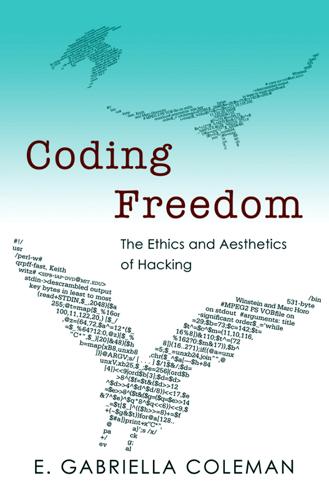
Coding Freedom: The Ethics and Aesthetics of Hacking
by
E. Gabriella Coleman
Published 25 Nov 2012
Although F/OSS is foremost a technical movement based on the principles of free speech, its historical role in transforming other arenas of life is not primarily rooted in the power of language or the discursive articulation of a broad political vision. Instead, it effectively works as a politics of critique by providing a living counterexample, or in the words of free software’s most famous legal counsel, Eben Moglen: “Practical revolution is based upon two things: proof of concept and running code.”1 Returning to the terminology offered by Bruno Latour (1993, 87), F/OSS production acts as a “theater of proof” that economic incentives are unnecessary to secure creative output—a message that attained visibility as various groups were inspired to follow in the footsteps of free software, and extend the legal logic of free software into other domains of artistic, academic, journalistic, and economic production.
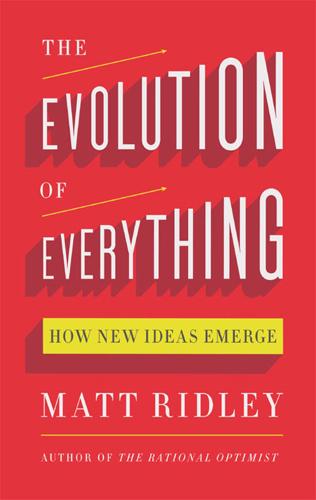
The Evolution of Everything: How New Ideas Emerge
by
Matt Ridley
We learned in recent years that America’s security state, just as much as Russia’s and China’s, is hell-bent on spying electronically on its citizens, then lying about the fact, while justifying its actions with secret interpretations of the law. The communications revolution was being used, in Eben Moglen’s words, to ‘fasten the procedures of totalitarianism on the substance of democratic society’. The governments of America, Europe and Asia, it emerged, all implicitly agreed that they should be free to listen to each other’s populations’ conversations. Only nobody told those populations that this was the new agreement.
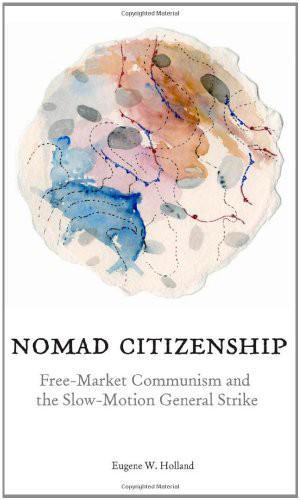
Nomad Citizenship: Free-Market Communism and the Slow-Motion General Strike
by
Eugene W. Holland
Published 1 Jan 2009
The third distinctive feature of the new system of production follows directly from the second: FOSS peer production is commons based, meaning that FOSS products cannot be privately owned; anyone can use then, and anyone can improve them. The General Public License (also known colloquially as copyleft), which was developed for the Free Software Foundation by Richard Stallman and Eben Moglen, assures that FOSS cannot become private property and remains instead a Common Good from which anyone may benefit and to which anyone may contribute (if she is able). This Internet-mediated intellectual commons is a key feature of the peer-production system, and we will return to it later. The final Im portant feature of the new system is that peer produc tion is based neither on incentives coming from the market nor on or ders coming from a boss or managing supervisor.
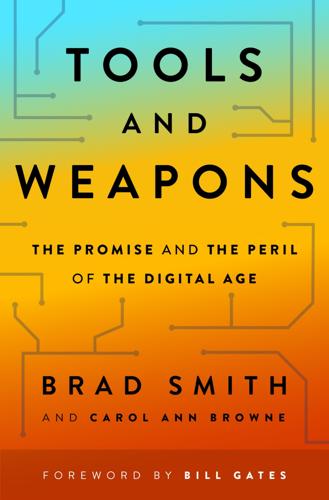
Tools and Weapons: The Promise and the Peril of the Digital Age
by
Brad Smith
and
Carol Ann Browne
Published 9 Sep 2019
Back to note reference 6. Drew Mitnick, “The urgent need for MLAT reform,” Access Now, September 12, 2014, https://www.accessnow.org/the-urgent-needs-for-mlat-reform/. Back to note reference 7. By coincidence, another judicial clerk arrived at the same time with a personal computer. His name was Eben Moglen, and he worked for a judge across the corridor on the twenty-second floor in Foley Square. We often chatted about our common interest in PCs. Eben would go on to become an impressive academic and leader of the open-source movement, becoming a professor of law at Columbia University and the chairman of the Software Freedom Law Center.
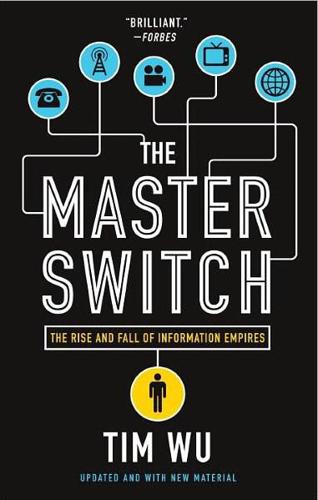
The Master Switch: The Rise and Fall of Information Empires
by
Tim Wu
Published 2 Nov 2010
Those who grew up in the late twentieth century have known the latter sort of idealism mainly as it manifests itself on the Internet in grand collaborative projects such as the blogosphere or Wikipedia and also in such controversial undertakings as Google’s digitization of great libraries. This impulse is part of what has attracted thinkers like Lawrence Lessig, originally a constitutional theorist, to Internet studies, examining the anthropological and psychological consequences of complete openness and the promise it holds. Scholars such as Harvard’s Yochai Benkler, Eben Moglen, and many others have devoted considerable attention to understanding what moves men and women to produce and share information for the sake of some abstract good. Of course the human urge to speak, create, build things, and otherwise express oneself for its own sake, without expectation of financial reward, is hardly new.
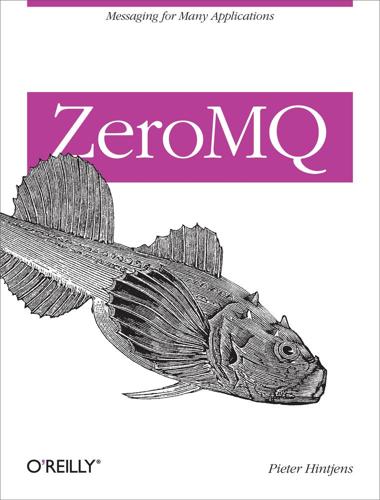
ZeroMQ
by
Pieter Hintjens
Published 12 Mar 2013
For the rest of us who want to build large-scale software, there’s Option Two, which is open source, and more specifically, free software. If you’re asking how the choice of software license is relevant to the scale of the software you build, that’s the right question. The brilliant and visionary Eben Moglen once said, roughly, that a free software license is the contract on which a community builds. When I heard this, about 10 years ago, the following idea came too: Can we deliberately grow free software communities? Ten years later, the answer is “yes,” and there is almost a science to it. I say “almost” because we don’t yet have enough evidence of people doing this deliberately with a documented, reproducible process.